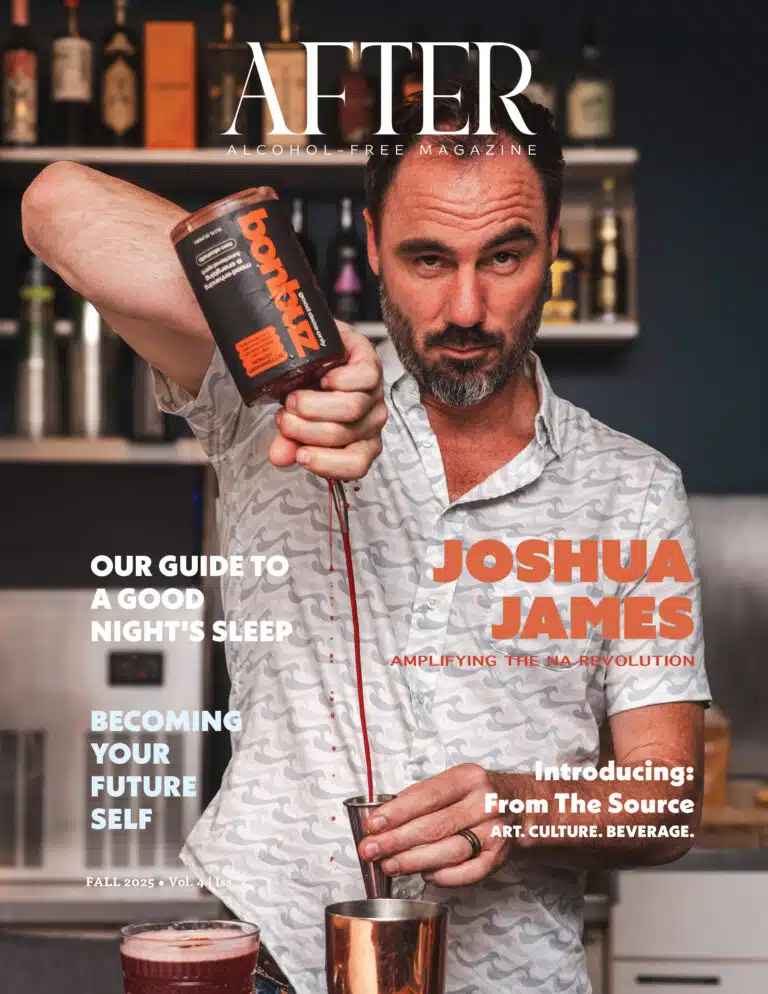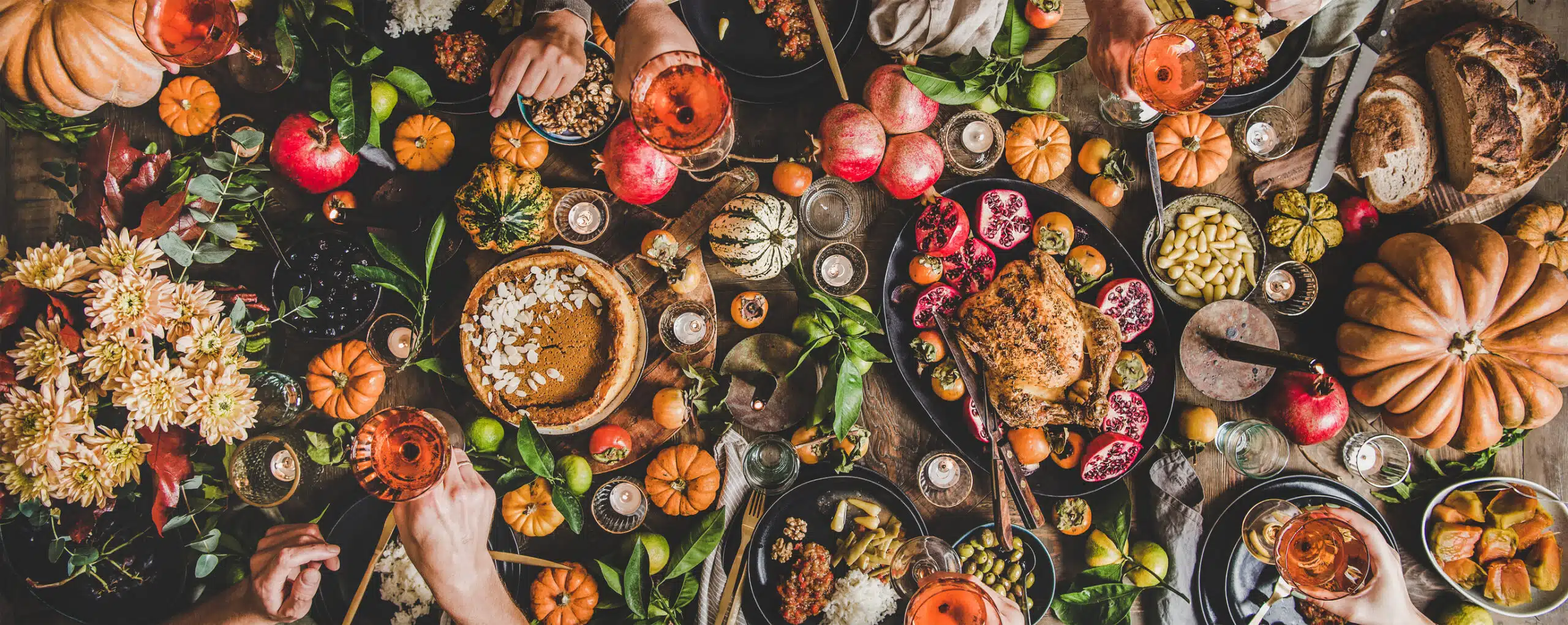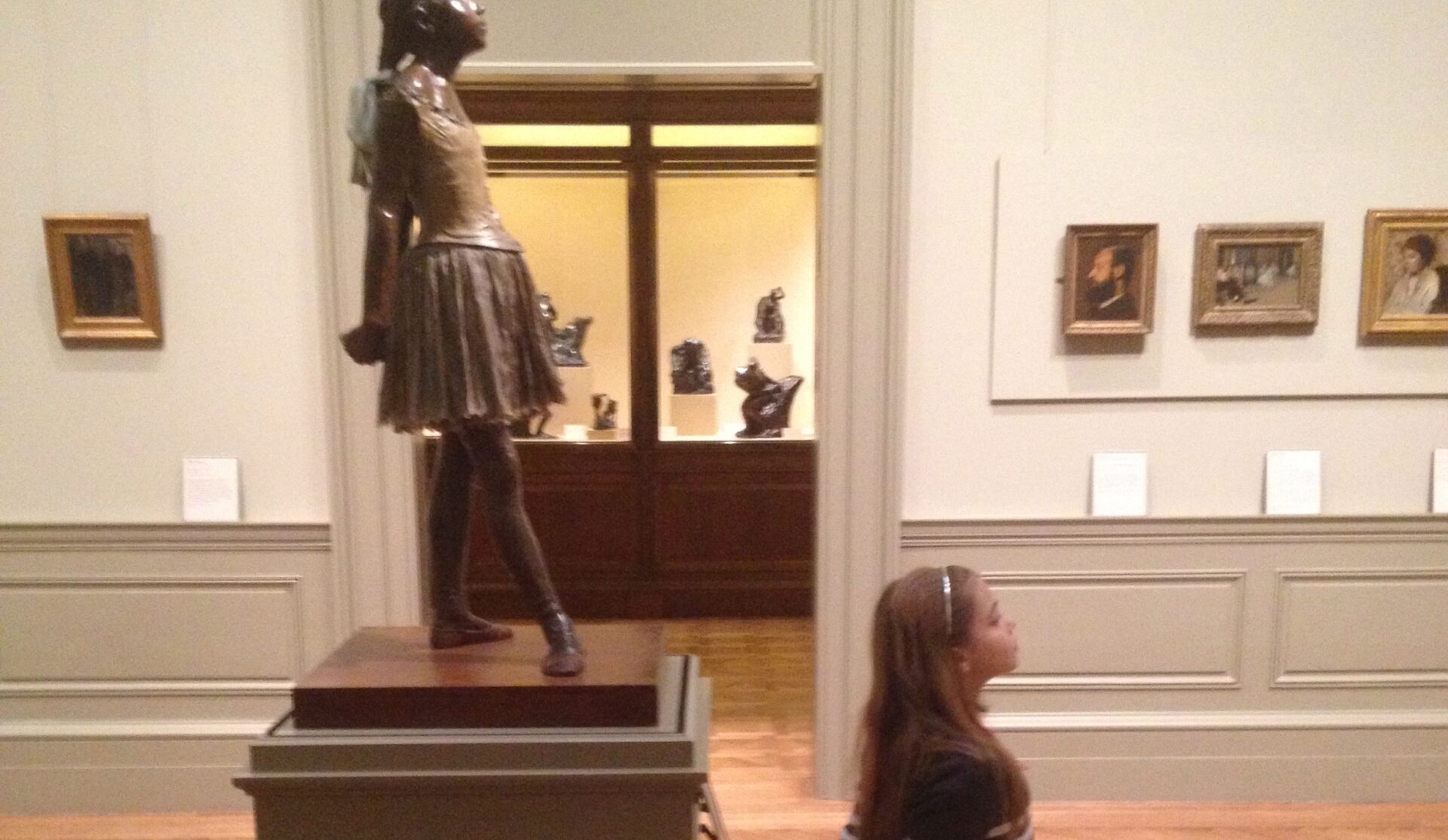For over a century, the world of “big alcohol” has epitomized the idea of the old boys’ club—a reputation well known inside and outside its ranks. Even as the gender gap in alcohol consumption has narrowed dramatically over the last 20 years with the rise of “mommy wine culture” and heavy marketing by alcohol brands towards women, the business of producing, marketing, and selling alcohol and adult beverages has remained a predominantly male domain.
With the rise of the alcohol-free movement, the tides are changing at a record pace. You don’t have to look far in the non-alcoholic beverage space to find women who are running the show. While binge drinking among women increased by 47% during the pandemic—and, with it, alcohol-related illnesses and deaths—the world of alcohol-free beverages has begun to gain a foothold in response. Over the past few years, the world has seen the emergence of a wealth of non-alcoholic options, and this time women are taking the reins in large numbers.
The dire consequences of alcohol consumption for women have been the impetus for change for many female founders in the AF space. “For many women in the category, the journey into the AF world stemmed from an awakening. Alcohol’s impact on our well-being is unsustainable,” says Fay Behbehani, founder of the popular brand Bonbuz. “As women, we understand, perhaps more intimately, the nuances of alcohol’s effects on our physiology and psyche.”
Behbehani theorizes that women have a greater sense of the stakes around alcohol consumption which has led them to the AF industry in droves. “This acute awareness has catalyzed the emergence of dynamic female entrepreneurs and trailblazers, who are not just disrupting, but revolutionizing the industry with intention….Women are securing unprecedented funding and driving unparalleled success,” she says.
“There is a transformative shift happening. In 2017, when I entered the alcohol category, the narrative was predominantly shaped by older white men, but the rise in female founders stands as a beacon of hope in an industry that is more sensitive and self-aware than any other I’ve had the pleasure of experiencing. I’m more excited than ever to contribute to this monumental shift.”
Almost everyone we spoke with mentioned a desire for options and inclusivity for those who choose to drink less, or not at all, as part of their founding mission. As Jessica Selander, founder of Jøyus (pictured, opposite) tells us, the road to success in creating those options was not without its challenges. Selander was inspired to enter the alcohol-free world long before its recent surge and spent the better part of a decade researching whether it made sense to move forward with her business. “I talked to over 100 people in the wine industry and all but four or five of them told me it was a terrible idea. They said, ‘Nobody wants that. There’s no market. These products are for pregnant ladies and alcoholics,’” she remembers. Selander, a sober mom herself, was not deterred. “Those people exist and deserve to have options,” she said.
Selander bucked the popular opinions of the day and developed Jøyus for people in a similar situation to her own. While her wines have gained appeal across all genders, her initial focus was to support women. Still, Selander faced many obstacles. “I had women’s wellbeing as my focus, but then I realized that the gatekeepers were all men,” she says. While she and her team have had success with a variety of wine buyers, there’s been a clear trend. “[To this day,] we have a noticeably easier time with women buyers. They are just more aware that this is something that people want.”
The “gatekeepers” of the beverage world can make or break a brand. Purchasing, shelf space, distribution, and marketing decisions, in many cases are still controlled by the long-term players, which can make it difficult for anyone butting up against the status quo. Noughty’s Amanda Thomson tells us, “Most of my struggles in the wine industry have not necessarily stemmed from being a woman, but from being an entrepreneur in a traditionalist industry that is unused to change.”
For Laurel Harrop, founder of Busty Lush, who was inspired to start her brand when pregnant with her second child and craving a high-quality beer, the obstacles for women-facing brands were more overt. Launching her beverage line in 2021. Harrop set out to create a vibrant, female-forward concept. Her brand’s iconic cans are unapologetically feminine—and beautifully illustrated by Harrop’s favorite artist, Chambers Austelle. The brand‘s name is a cheeky poke at the overt sexualization of the alcohol industry. “When I first launched, I talked to a male distributor who told me, ‘I’m sorry but we can’t support this branding.’” Harrop has overcome these challenges to build a successful brand which now offers several varieties of beers along with two canned mocktails.
Melanie Masarin of Ghia says, “The life of being an entrepreneur in general is in direct conflict with our society’s standard of what a woman’s life should be.” Indeed it seems while female founders are happy to stake their place in this world, most also agree there are hurdles to cross. Rebecca Styn founder of Blind Tiger says, “I believe there are advantages and disadvantages to being a female founder in any industry. The most challenging part for me has been securing investment funding. In 2022, companies founded solely by women garnered only 2% of the total capital invested in venture-backed startups in the U.S. There is definitely room for improvement.”
Masarin concurs, “It is true that much less venture capital funding goes to female entrepreneurs. I’m excited to hopefully be a statistic and pave the way for a more equal world for my future daughters.”
Rachel Martin of Oceano Zero, whose journey began in the traditional wine industry in 2002, offers perspectives from both sides of the beverage world. She says “I’ve witnessed a significant evolution in gender dynamics,” Twenty years ago, the industry was deeply entrenched in misogyny and male bravado with few women in decision-making roles. Women were often relegated to lower-level positions and overshadowed by male managers. My experience was emblematic of this era; despite being hired as second-in-command in my family’s wine business, I frequently encountered belittlement in meetings and was kept at arm’s length from crucial financial insights.” Martin continues, “Particularly in distribution, the gender imbalance was stark. Nearly all wine buyers for restaurants and retail were men, and interactions often carried an uncomfortable, sexualized undertone. Even upon founding Oceano Wines, there was an assumption [among people in these roles] that I was in marketing and not the owner.” she says.
“The contrast with the non-alcoholic industry today is striking, Martin continues. In this emerging sector, I am heartened to see a proliferation of women founders, managers, and sales team members. This shift is not just in numbers, but also in the roles and respect accorded to women,” says Martin. “The non-alcoholic industry feels like a breath of fresh air, where women’s contributions and leadership are valued and visible. It’s a testament to the changing times and the ongoing evolution within the beverage industry. The difference in atmosphere and attitude is palpable, signaling a more inclusive and equitable future. As we move forward, it’s crucial to maintain this momentum, ensuring that the beverage industry, both alcoholic and non-alcoholic, continues to evolve into a space where everyone, regardless of gender, has the opportunity to lead, innovate, and succeed.”
De Soi’s Morgan McLachlan offers similar positivity. “Being a female pioneer in distilling has been liberating. I was never going to be part of the boys’ club so I felt empowered to hone my craft on my own terms and free to take novel and experimental approaches to the liquor category.
Entrepreneurs and consumers alike are feeling the creative and positive atmosphere in the growing non-alcohol sector. Nearly every founder we spoke with mentioned the warmth of other companies and founders—both male and female—and the supportive community within the alcohol-free world. While competition is inevitable, Selander describes a sense that the rising tide benefits everyone in the category. Harrop adds, “It has been a wonderful experience being part of the NA industry. There’s so much support and teamwork across the majority of the brands. It is a wonderful community to be part of!” Beth Wilson-Parentice of WoW Sparkling Cocktails says, “There’s a profound sense of camaraderie, recognizing the collective strength that women bring to reshape the narrative and break barriers in this dynamic field.”
This support of other women spills over beyond the borders of the industry itself. Ellie Web, founder of the effusive brand Caleño, tells us, “I’m part of an organization called Buy Women Built. It’s a collective of incredible women whose mission is to shine a spotlight on female entrepreneurs and their brands,” she says. “We want to inspire more young women to follow in our footsteps.”
Spiritless’ Lauren Chitwood says, “We believe in paying it forward for other women. Two percent of our profits go to organizations that promote leadership, career development, and entrepreneurship for women.” Similarly, Melati’s Lorin Winata dedicates proceeds from her company to help support women’s development in Indonesia.
As the industry continues to evolve and grow, and as bigger players enter the space, we look to these women to guide the positive energy of the alcohol-free movement. “The hope is that the industry will retain the unique qualities that make it special. The values, diversity, and personal touch that women have brought to this sector need to remain at its core, even as it evolves,” says Martin. “The involvement of more prominent companies should ideally mean more resources and greater reach, but not at the cost of the essence that makes the adult non-alcoholic beverage industry so appealing and inclusive. Maintaining this balance will be vital to preserving the integrity and vibrancy of this burgeoning sector. It’s about ensuring that the industry continues to be a space where innovation, inclusivity, and equitable representation thrive.”
The same factors that have made women successful early movers in non-alcoholic beverages provide the tools they will need to stand their ground and evolve, as needed. “We treat people around us or in our businesses like they are family,” says Webb. “We’ve got so much to offer in terms of contributing to our wider planet, economy, and people across the globe.”
So what’s next? As Kristina Roth, founder of Mixoloshe says, “Stand up for yourself and make it happen!” Every founder we spoke with mentioned plans for expansion of product lines, distribution and sales, growth of the category as a whole, and as one mentioned, “global domination.” They also continue to change the industry—Harrop recently launched a wholesale distribution network, Airgoods— and are intently focused on changing the way people drink as a whole. While the industry is still evolving, with these players in place, it’s easy to be excited about what’s to come.
Thank you to these amazing founders who also spoke to us for this article. Visit their products to learn more!
ADVERTISEMENT




